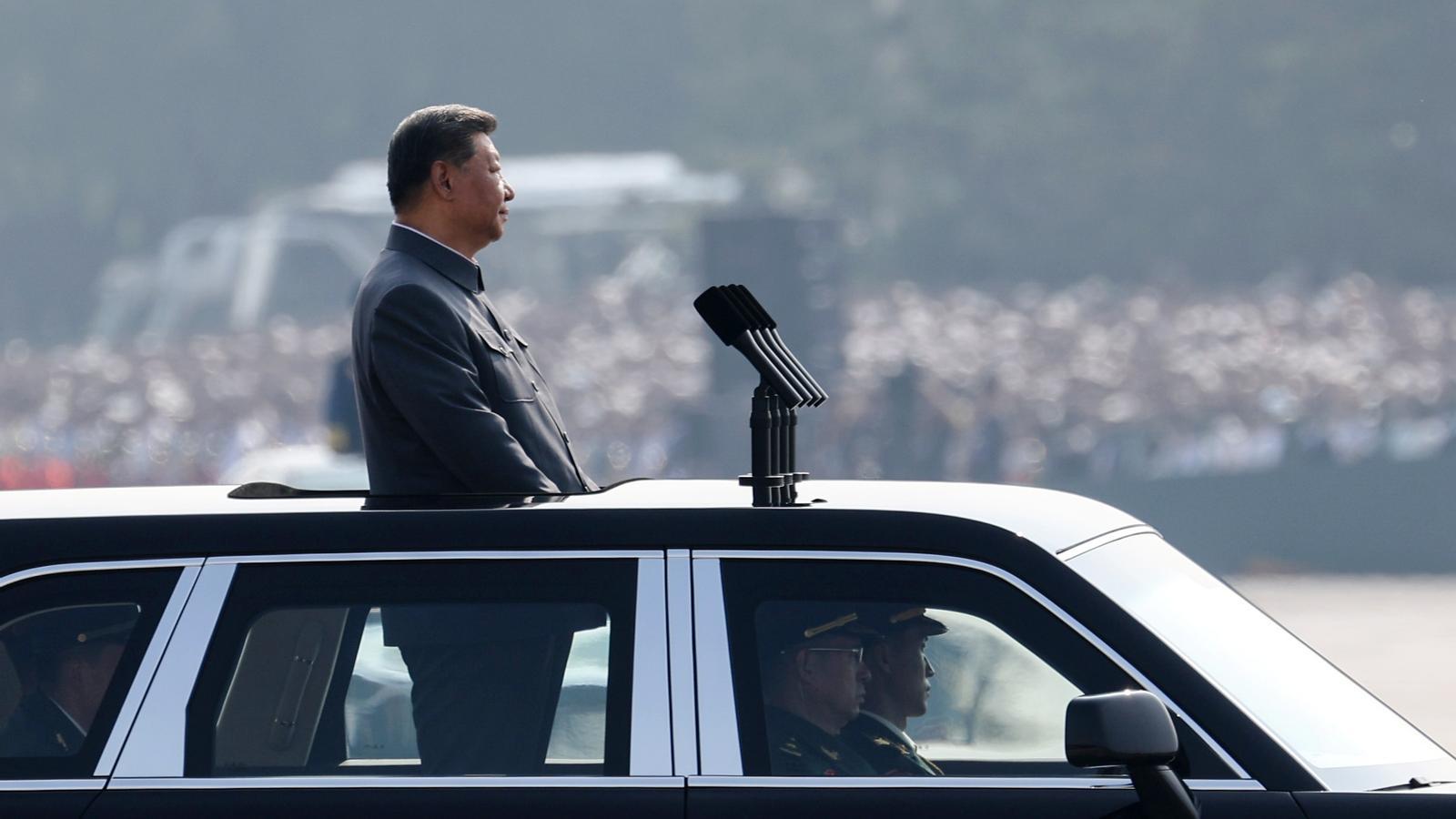Xi Jinping emerges as the leader of a new world order
The Chinese president makes an unprecedented show of force and claims that there are alternatives in the US and the West.


BeijingChinese President Xi Jinping has deployed diplomatic influence and military power this week to challenge the West and establish himself as the leader of a new world order. In a carefully planned setting with events choreographed down to the last detail, Xi has presented himself as a counterweight to the United States with ease.
The week began with the annual summit of the Shanghai Cooperation Organization (SCO), which took place in the city of Tianjin, considered the capital's port. Xi Jinping rolled out the red carpet to welcome around twenty countries and a dozen international organizations. He used this platform, which represents 40% of the world's population, to assert that alternatives exist in the West. Specifically, he called for a "fairer and more equitable system of global governance" and even dared to speak of democracy, demanding it in international relations and that all countries have equal influence. He also defended the role of multilateral organizations such as the UN, the World Trade Organization (WTO), and the BRICS, actively advocating for respect for all cultures.
The Chinese leader was playing an important card: the presence of Indian Prime Minister Narendra Modi, who is keen to reestablish relations with China, pushed by Donald Trump's tariffs. Modi, a member of the SCO, seems willing to forget past border clashes and proclaimed that the 21st century would be "the century of Asia," warning of the combined power of the world's two most populous countries.
Military display
Diplomacy then gave way to a display of military might. The parade commemorating the 80th anniversary of Japan's surrender and the end of World War II in Asia was all about a demonstration of the power of China's modernized armed forcesChina displayed a cutting-edge arsenal of combat and unmanned aircraft, nuclear-capable intercontinental missiles, missile defense systems, drones, tanks... All of this demonstrates the qualitative leap its military has made in the last ten years and how it has become a power to be feared, although still far behind the United States. In other words, China is no longer just an economic giant, but a military force.
The image of Xi Jinping flanked by Russian President Vladimir Putin and North Korean leader Kim Jong-un, as guests of honor at the parade, was the final chapter of the drama. It sent a clear message to Donald Trump and the West: China chooses its alliances and accepts no pressure.
The leak of the animated conversation between Putin and Xi about their desire to live to 150 thanks to biotechnology further intensifies relations. It was the first time the three leaders appeared together in public, and the chosen setting was the steps of the Gate of Heavenly Peace, above the portrait of Mao, the place where power is displayed in China.
The alliance between the three countries, however, is not symmetrical. International sanctions have turned China into the main economic supporter of Russia and North Korea. The message was powerful and made it clear that the United States' attempts to separate Russia from China are hopeless. Nor should we forget the challenge in Europe. Putin accused the West of being responsible for the invasion of Ukraine, to Xi Jinping's acquiescence. China's supposed neutrality in the face of the invasion is now difficult to sustain.
Patriotic Pride
This week's events were also important in terms of domestic politics because they have instilled a sense of patriotic pride. The country is not going through the best of times: the economy is not recovering, the real estate bubble has yet to bottom out, and unemployment is rising. Military power also has its ups and downs: Xi maintains a continuous purge in the army to eradicate alleged cases of corruption.
The Chinese president has known how to take advantage of the geopolitical situation. Donald Trump's disruptive international policy, driven by his "America First" policy, is an opportunity for China. The tariff war against all, the erratic support for Ukraine, and the United States' withdrawal from international organizations leave a vacuum that the Asian giant easily fills.
This week has seen the image of an isolated Donald Trump, facing an empowered Xi Jinping surrounded by allies. This, despite surrounding itself with the world's most sanctioned countries—Iran, Burma, North Korea, and Russia—and authoritarian regimes like Vietnam and Laos. However, this week's theatrical performance has flaws. Despite its rhetoric in favor of multilateralism and equal participation, China does not seek equal relations with its neighbors. The confrontation over control of the South China Sea demonstrates this.
The Asian giant's respect for international institutions is ambivalent. For example, it does not recognize international resolutions on the Philippines' territorial waters. Nor can it be forgotten that the official discourse of respect for other cultures is not very credible given how China represses Tibetans and Uyghurs in its own country.
This week, Xi Jinping called on Western countries to "abandon the spirit of the Cold War." It is a recurring statement in his speeches and in those of Chinese diplomacy. But the image emerging from Beijing is not one of dialogue: it shows the configuration of a group of anti-Western countries, led by the Chinese leader, willing to transform the current world order.
Beijing has also sent a message to the Global South, that is, to developing countries: growth and modernization are possible without democracy or respect for human rights. In short, China shows that the path of authoritarianism is a valid path.
